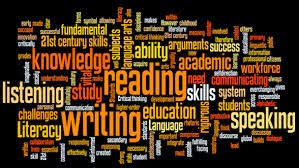Time for Reading

Its that time of year when we get a chance to stop and think about all the things we wanted to do and never quite got done. For me one of those things is reducing the reading list & next year I plan to allocate some time each week to professional reading. ULearn15 : If you didn't get the chance to go or like me couldn't be in several places at once and missed some of the spotlight sessions, you can find their presentations here . Keynote presenters included, Grant Lichtman, Dr Ann Leiberman, Pat Sneddon. Over the weekend, I watched Leaders growing Leaders, from Barbara Cavanagh , Principal, of Albany Senior High School. A key message was, to be an educational leader we should learn about learning so we can make every student a successful learner . Her reading list for us included Leadership Mindsets. Linda Kaser & Judy Halbert Building Learning Power. Guy Claxton Mindset. Carol Dwek Student Centred Leadership. Vivianne Robinson ...





